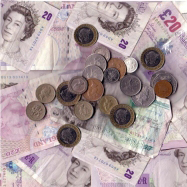 Business Link says ‘Cash is the oxygen that enables a business to survive and prosper and is the primary indicator of business health. While a business can survive for a short time without sales or profits, without cash it will die.’
Business Link says ‘Cash is the oxygen that enables a business to survive and prosper and is the primary indicator of business health. While a business can survive for a short time without sales or profits, without cash it will die.’
This is a definitive warning that cash in a business needs managing. For convenience retailers like me the biggest demand for cash is to pay our suppliers, whether at a cash and carry when we need to pay for the stock immediately for the stock we buy or some days later if wholesaler supplied. Without available cash we will find it difficult to obtain stock.
My wife and I run a village shop and offer a home newspaper delivery service so have some of our cash tied up in the credit we offer these customers.
The cash flows through my business with rapacious easy, from customers to suppliers, staff, the government, our bank and of course some to ourselves as owners. Having enough of it as cash in our bank account to meet the weekly, monthly, quarterly or annual demand is of course what cash flow management is about.
Cash, comes in different forms, from cash on hand or in our bank account which is immediately available, in the form of stock or home news delivery book debt which is likely to be returned to cash today, tomorrow, sometime in the future or maybe never.
We are fortunate to have a regular and fairly predictable turnover and our buying pattern reflects this. Our two major suppliers do ‘give’ us 10 days credit and demand a variable direct debit for payment. This means we know that each week our bank account needs sufficient funds to cover these demands. To ensure that our bank account has the funds we bank daily through an in store ATM and with credit and debit card transactions.
The big challenge each year is of course paying our corporation tax; which for us falls due at the beginning of February. This year and last year we negotiated an extended payment period the HMRC that allowed us to spread the payment across six months to ease the pressure on cash flow. This does come with a cost of the interest that HMRC charge on the delayed amount and this year this is a little over £80.00 and that seems a small amount to ease this big annual charge.
I know how much cash we have on hand and what we have available in our bank account on a daily basis. I know that with a regular business we have similar weekly out goings and we know we have funds to pay the monthly and quarterly bills as they come up. What is important to me is that by having the knowledge of our cashflow situation and managing when we make payments our business always live within its means.



Comments
This article doesn't have any comments yet, be the first!